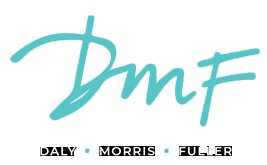Best Job Discrimination Lawyers in Westville
Share your needs with us, get contacted by law firms.
Free. Takes 2 min.
List of the best lawyers in Westville, South Africa
About Job Discrimination Law in Westville, South Africa
Job discrimination occurs when an employee, job applicant, or worker is treated unfairly or unequally in the workplace based on specific attributes such as race, gender, age, disability, religion, or other protected grounds. In Westville, South Africa, as in other parts of the country, various laws and organizations protect individuals from discrimination at work. The main objective is to promote equality, fair treatment, and diversity in all aspects of employment, including recruitment, promotion, compensation, and termination.
Why You May Need a Lawyer
If you believe you have been a victim of job discrimination or are facing issues related to unfair treatment at work, consulting a legal professional can be vital. Here are common situations when legal assistance may be needed:
- Your employer refuses to address or resolve your discrimination complaint.
- You are subject to harassment, bullying, or retaliation after raising a complaint.
- Punitive actions such as demotion, termination, or unfavorable transfers occur after reporting discrimination.
- You need help understanding your rights and navigating complex legal processes or documentation.
- Your employer is in breach of local or national equality and anti-discrimination laws.
- You seek compensation or reinstatement due to losses caused by unfair workplace practices.
- A resolution through your workplace’s internal grievance procedures has failed.
Local Laws Overview
The key legal framework protecting against job discrimination in Westville falls primarily under national legislation, with applications at the local level. The most relevant laws and policies include:
- Employment Equity Act (EEA): This act prohibits unfair discrimination in the workplace based on race, gender, sex, pregnancy, marital status, family responsibility, ethnic or social origin, color, sexual orientation, age, disability, religion, HIV status, conscience, belief, political opinion, culture, language, and birth.
- Labour Relations Act (LRA): Provides mechanisms for resolving unfair labor practices, which may include discriminatory practices.
- Constitution of South Africa: Section 9 guarantees equality before the law and prohibits discrimination.
- Codes of Good Practice: These provide guidelines on how employers should implement fair practices and prevent discrimination.
Locally, the Department of Employment and Labour ensures these laws are adhered to and assists with complaint processes. If a person faces discrimination, they can approach the Commission for Conciliation, Mediation and Arbitration (CCMA) or the Labour Court after following internal grievance procedures.
Frequently Asked Questions
What types of discrimination are illegal in the workplace?
South African law prohibits discrimination based on race, gender, sexual orientation, age, disability, religion, belief, language, culture, and other specified grounds.
Does discrimination include harassment and bullying?
Yes, workplace harassment and bullying based on any protected grounds can constitute unlawful discrimination.
How do I file a discrimination complaint in Westville?
You should first use your employer’s internal grievance mechanism. If unresolved, you may approach the CCMA or the Department of Employment and Labour.
What evidence do I need to support my claim?
Keep records of discriminatory incidents, emails, messages, witness statements, and any responses from your employer.
Can I be fired for reporting discrimination?
It is illegal for employers to retaliate against employees who report discrimination. If retaliation occurs, you have additional legal protections and remedies.
What can I expect if my case is successful?
Possible outcomes include reinstatement, compensation, policy changes by your employer, and other remedies ordered by the CCMA or courts.
How long do I have to file a discrimination claim?
Generally, you need to refer your dispute to the CCMA within six months of the discriminatory act, but sooner is always better.
Are all employers covered by these laws?
Most employers, regardless of size, must adhere to anti-discrimination laws, although additional obligations may apply to larger employers.
What if the discrimination is subtle or indirect?
Both direct and indirect discrimination are prohibited. You can bring claims even if the discrimination is not overt-seek legal advice for help gathering evidence.
Can I settle the matter out of court?
Yes, mediation or conciliation through the CCMA is encouraged and can resolve many discrimination disputes without formal court proceedings.
Additional Resources
If you are seeking more information or need support, consider contacting the following organizations and bodies:
- Department of Employment and Labour (local and regional offices)
- Commission for Conciliation, Mediation and Arbitration (CCMA)
- South African Human Rights Commission (SAHRC)
- Legal Aid South Africa
- Law Society of South Africa
- Trade unions and employee associations
- Community advice offices in Westville
Next Steps
If you believe you are experiencing job discrimination in Westville, South Africa, take the following steps:
- Document all incidents related to the discrimination, including dates, times, and witnesses.
- Review your employment contract, workplace policies, and the company’s grievance procedure.
- Lodge a formal complaint with your employer through the prescribed process.
- If you receive no satisfactory resolution, contact the CCMA or the Department of Employment and Labour.
- Consult a legal advisor experienced in employment law to assess your case, especially if it is complex or involves severe discrimination.
- Utilize resources such as Legal Aid South Africa if you cannot afford private legal services.
- Attend all scheduled hearings or meetings and maintain clear communication with involved authorities.
Remember, you have a right to equitable treatment at work. Timely action, good documentation, and professional advice can make a significant difference in the outcome of your job discrimination matter.
Lawzana helps you find the best lawyers and law firms in Westville through a curated and pre-screened list of qualified legal professionals. Our platform offers rankings and detailed profiles of attorneys and law firms, allowing you to compare based on practice areas, including Job Discrimination, experience, and client feedback.
Each profile includes a description of the firm's areas of practice, client reviews, team members and partners, year of establishment, spoken languages, office locations, contact information, social media presence, and any published articles or resources. Most firms on our platform speak English and are experienced in both local and international legal matters.
Get a quote from top-rated law firms in Westville, South Africa — quickly, securely, and without unnecessary hassle.
Disclaimer:
The information provided on this page is for general informational purposes only and does not constitute legal advice. While we strive to ensure the accuracy and relevance of the content, legal information may change over time, and interpretations of the law can vary. You should always consult with a qualified legal professional for advice specific to your situation.
We disclaim all liability for actions taken or not taken based on the content of this page. If you believe any information is incorrect or outdated, please contact us, and we will review and update it where appropriate.










